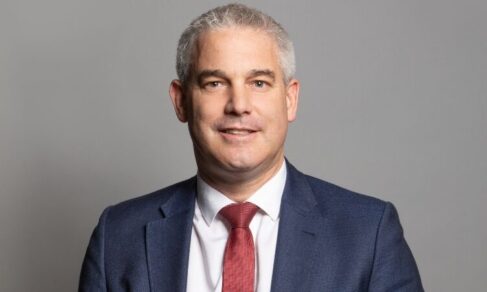Steve Barclay orders civil servants to increase overseas recruitment

Steve Barclay, health and social care secretary, has ordered civil servants to significantly increase overseas recruitment of health and social care staff as he warns that there will be a ‘sprint’ to prepare the health services for winter.
Mr Barclay made this announcement as part of a warning that the NHS could face a ‘triple threat’ of Covid, seasonal flu, and the cost of living crisis this winter. He said the Department of Health and Social Care (DHSC) was in a ‘real sprint’ in order to tackle ‘very serious challenges coming down the track in the autumn’.
The health secretary claimed that recruitment could be expanded if more hiring took place in nations including the Philippines, India, and Sri Lanka, which Mr Barclay claims produce more nurses than they need.
Related Article: New preceptorship package for social care nurses
Mr Barclay also told The Telegraph that he wants the program to see thousands more healthcare workers arriving in the UK, particularly in the social care sector.
The health secretary also said the social care sector would benefit from hiring foreign workers who have nursing qualifications, but not a high enough standard of English for front line NHS work, into non-nursing roles.
Social care workers are required to meet the UK Visas and Immigration language requirement, while social care employers can set additional language and communication skills. The NMC sets language requirements for nursing roles.
Related Article: Applications to study nursing in England at ‘new low’
The Government has also recently tightened guidelines on the use of ‘repayment clauses’ in overseas recruitment contracts, which can trap workers in roles for up to four years, threatening them with payments of up to £14,000 if they try to leave. However, the RCN has raised concerns that little can be done to enforce these rules, with increased overseas recruitment leaving staff at the mercy of ‘rogue employers’.
RCN secretary general Pat Cullen said: ‘Employers must respect and apply these new rules and the UK Government must clarify how it will ensure they are enforced, especially in the independent sector where nurses and support workers frequently face harassment from rogue employers.
‘We call on governments across the UK to invest in expanding the domestic workforce, and to introduce bilateral agreements to ensure all international recruitment is mutually beneficial for countries, professionals and populations. Recruitment must be transparent, dignified and ensure that anyone in employment in the UK is free from exploitation.’
A Department of Health and Social Care spokesperson said: ‘We are committed to building and supporting our hard-working NHS and social care workforces and have launched a taskforce to drive up the recruitment of international staff into critical roles across the system.
‘The taskforce will work with experts across government and the NHS and social care sectors to agree actions that will boost staff numbers ahead of the challenging winter period.
Related Article: Paul Rees appointed as permanent NMC chief executive and registrar
‘Further details will be set out in due course.’
Image Credits: UK Parliament Official Portrait

See how our symptom tool can help you make better sense of patient presentations
Click here to search a symptom




